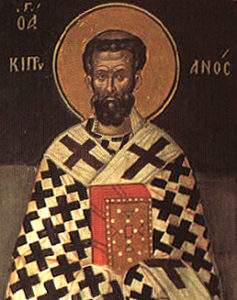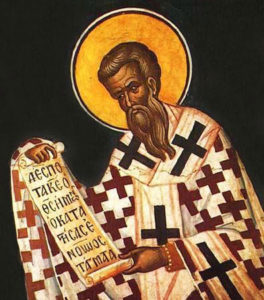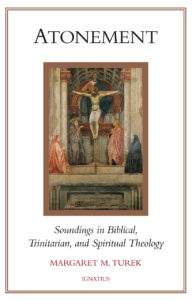Podcast: Play in new window | Download (Duration: 2:45 — 2.0MB) | Embed
Subscribe: Apple Podcasts | Spotify | Amazon Music | Android | Pandora | iHeartRadio | JioSaavn | Podchaser | Gaana | Podcast Index | Email | TuneIn | Deezer | Anghami | RSS | More
From the Mirror of Love by Saint Aelred, abbot
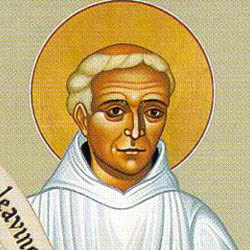
Christ, the model of brotherly love
The perfection of brotherly love lies in the love of one’s enemies. We can find no greater inspiration for this than grateful remembrance of the wonderful patience of Christ. He who is more fair than all the sons of men offered his fair face to be spat upon by sinful men; he allowed those eyes that rule the universe to be blindfolded by wicked men; he bared his back to the scourges; he submitted that head which strikes terror in principalities and powers to the sharpness of the thorns; he gave himself up to be mocked and reviled, and at the end endured the cross, the nails, the lance, the gall, the vinegar, remaining always gentle, meek and full of peace.
In short, he was led like a sheep to the slaughter, and like a lamb before the shearers he kept silent, and did not open his mouth.
Who could listen to that wonderful prayer, so full of warmth, of love, of unshakeable serenity – Father, forgive them – and hesitate to embrace his enemies with overflowing love? Father, he says, forgive them. Is any gentleness, any love, lacking in this prayer?
Yet he put into it something more. It was not enough to pray for them: he wanted also to make excuses for them. Father, forgive them, for they do not know what they are doing. They are great sinners, yes, but they have little judgement; therefore, Father, forgive them. They are nailing me to the cross, but they do not know who it is that they are nailing to the cross: if they had known, they would never have crucified the Lord of glory; therefore, Father, forgive them. They think it is a lawbreaker, an impostor claiming to be God, a seducer of the people. I have hidden my face from them, and they do not recognise my glory; therefore, Father, forgive them, for they do not know what they are doing.
If someone wishes to love himself he must not allow himself to be corrupted by indulging his sinful nature. If he wishes to resist the promptings of his sinful nature he must enlarge the whole horizon of his love to contemplate the loving gentleness of the humanity of the Lord. Further, if he wishes to savour the joy of brotherly love with greater perfection and delight, he must extend even to his enemies the embrace of true love.But if he wishes to prevent this fire of divine love from growing cold because of injuries received, let him keep the eyes of his soul always fixed on the serene patience of his beloved Lord and Saviour.
Bend our wills, Lord, so that by this Lenten observance
we may fit ourselves to celebrate the Easter festival;
and as we have all undertaken to subdue the body,
may we all be renewed in spirit.
Through our Lord Jesus Christ, your Son,
who lives and reigns with you in the unity of the Holy Spirit,
God, for ever and ever.
Excerpts from the English translation of The Liturgy of the Hours (Four Volumes) © 1974, International Commission on English in the Liturgy Corporation. All rights reserved.

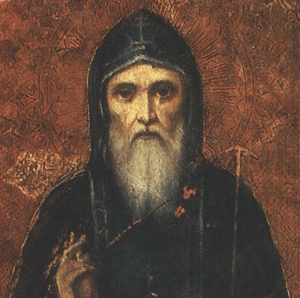
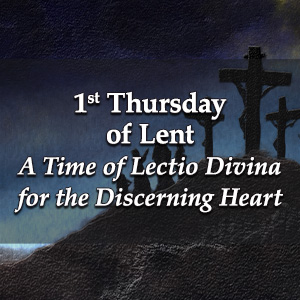 1st Thursday of Lent- A Time of Lectio Divina for the Discerning Heart Podcast
1st Thursday of Lent- A Time of Lectio Divina for the Discerning Heart Podcast
 For other audio recordings of various spiritual classics you can visit the
For other audio recordings of various spiritual classics you can visit the 
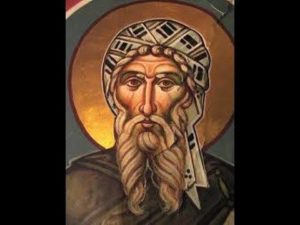
 Hadewijch of Antwerp, Teresa of Avila, Thérèse of Lisieux, Elizabeth of the Trinity, and Edith Stein are all women who have influenced the faith. Kris McGregor joins Steve and Becky Greene to discuss these extraordinary women and the second edition of Fr. Louis Bouyer’s book, Women Mystics.
Hadewijch of Antwerp, Teresa of Avila, Thérèse of Lisieux, Elizabeth of the Trinity, and Edith Stein are all women who have influenced the faith. Kris McGregor joins Steve and Becky Greene to discuss these extraordinary women and the second edition of Fr. Louis Bouyer’s book, Women Mystics.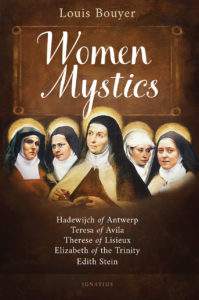 You can buy a copy of the book here.
You can buy a copy of the book here.

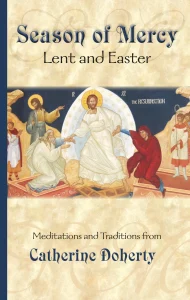 Seek God’s Will
Seek God’s Will